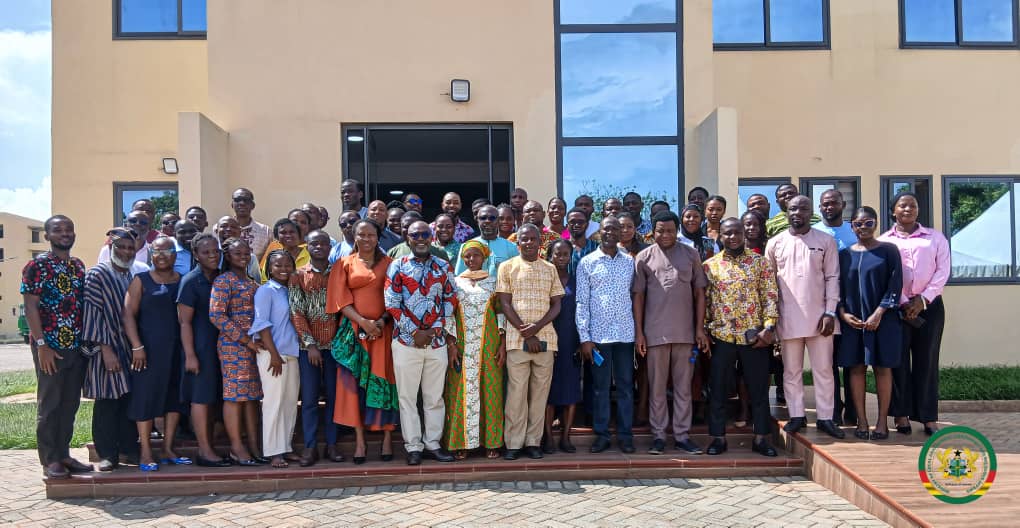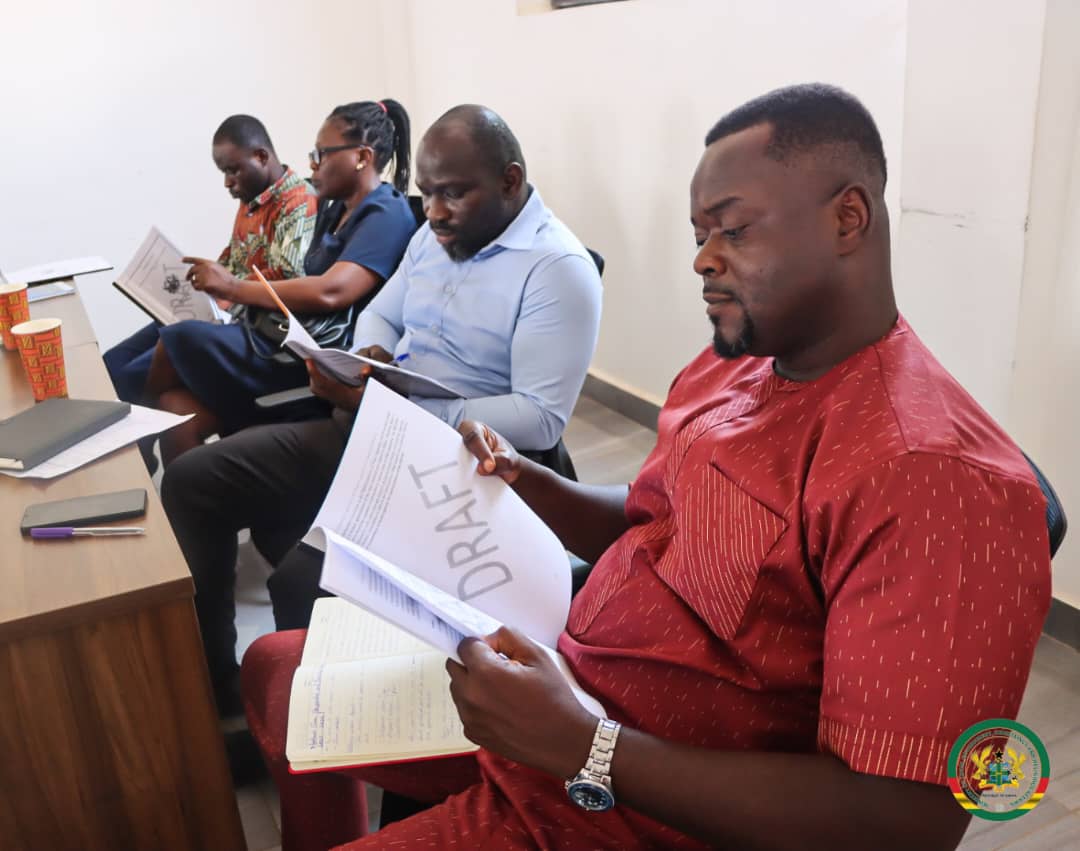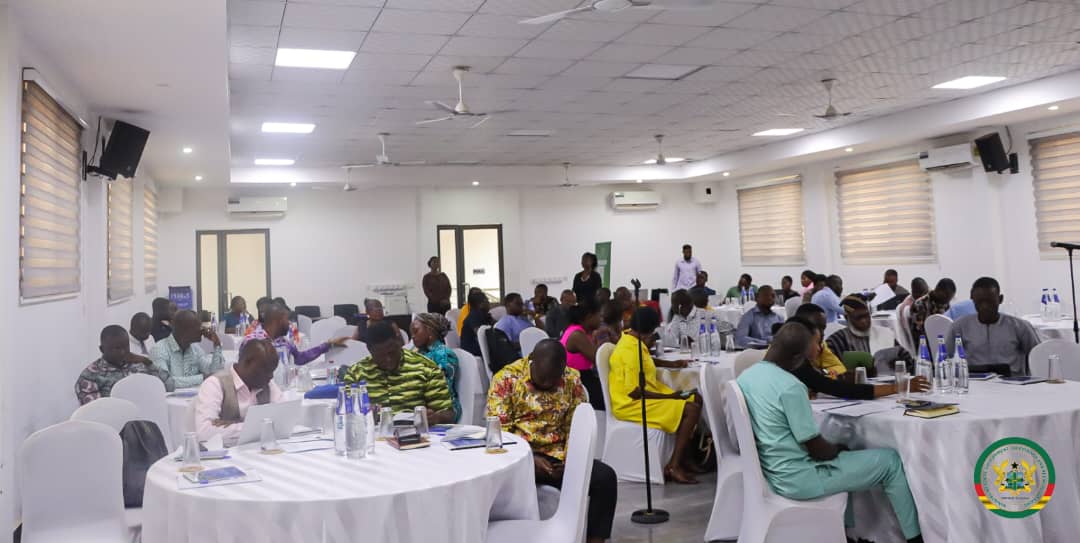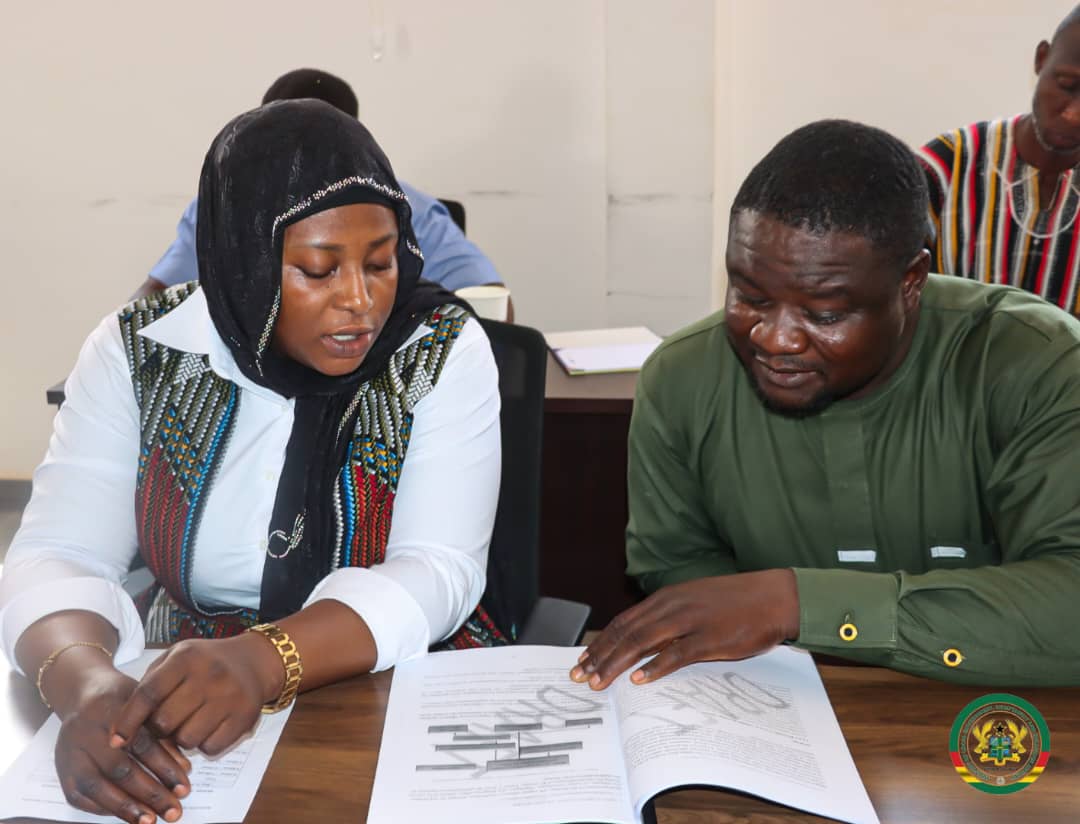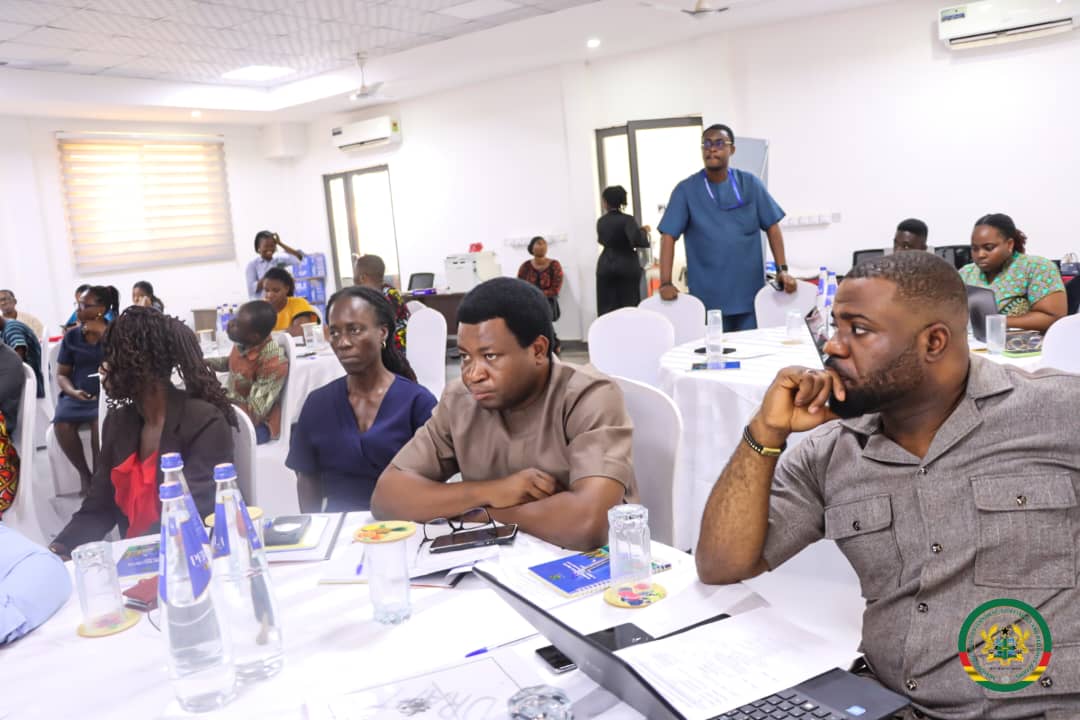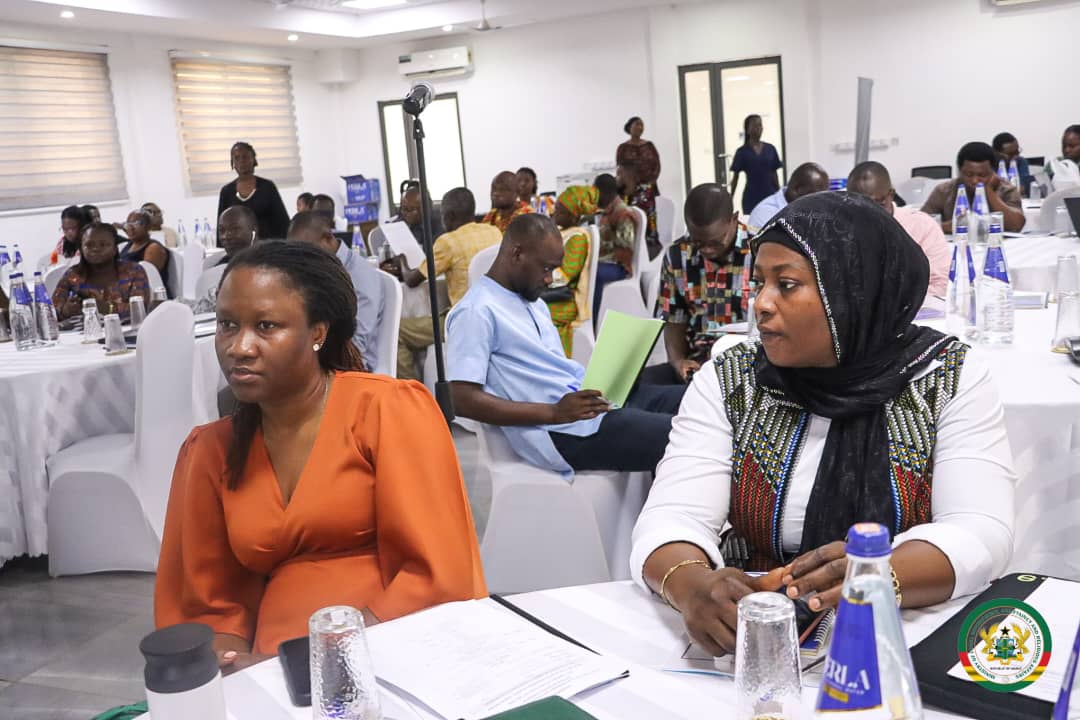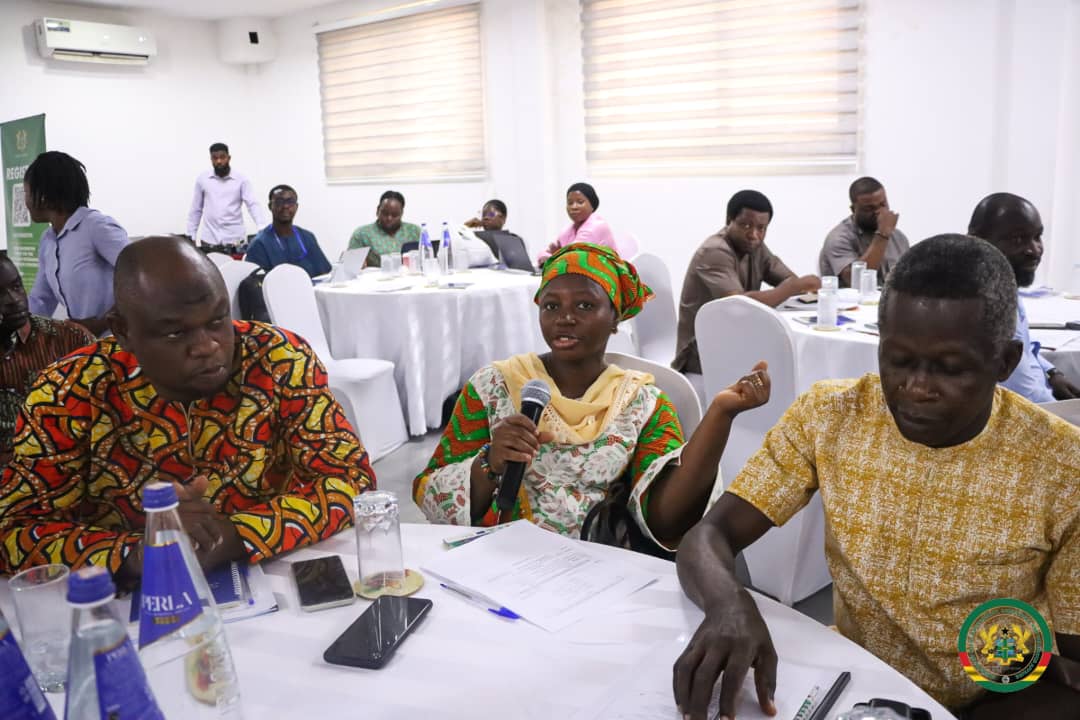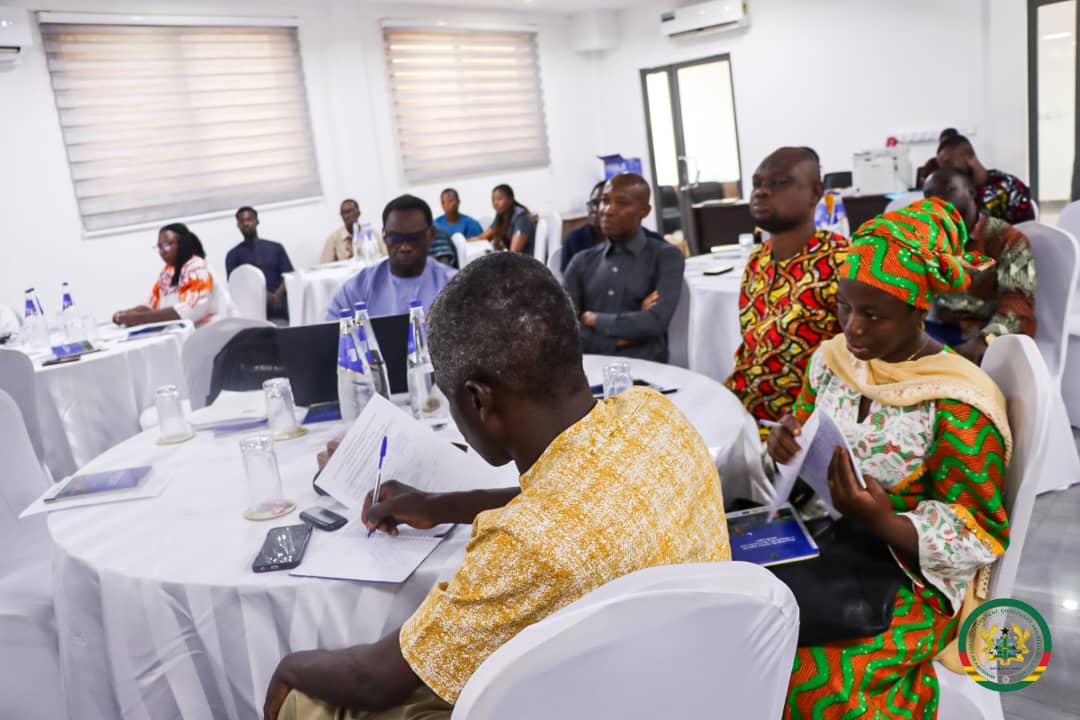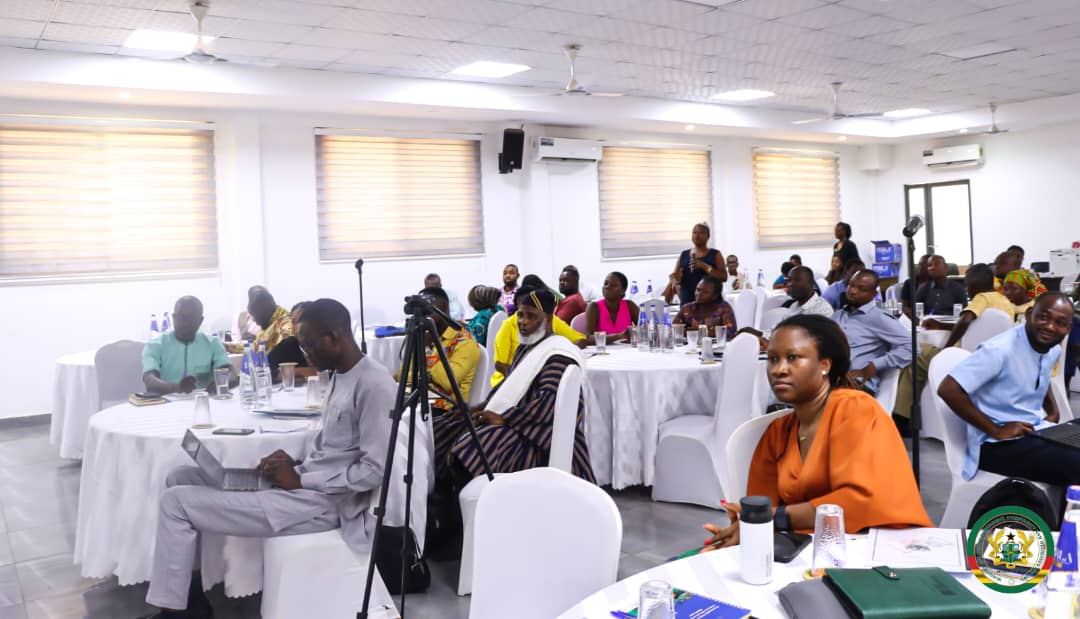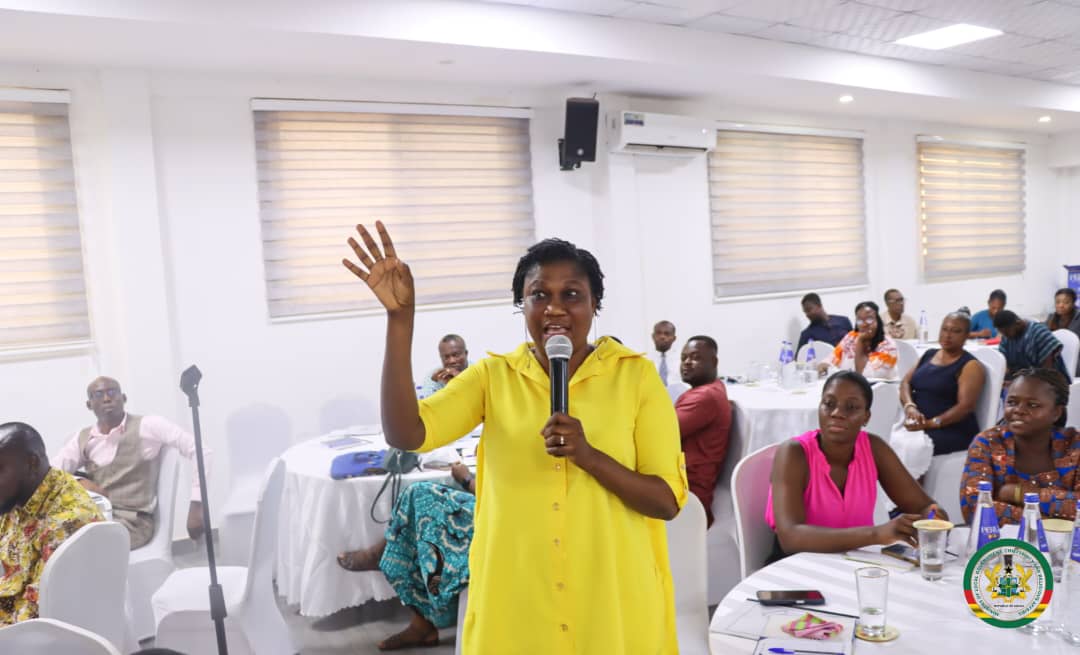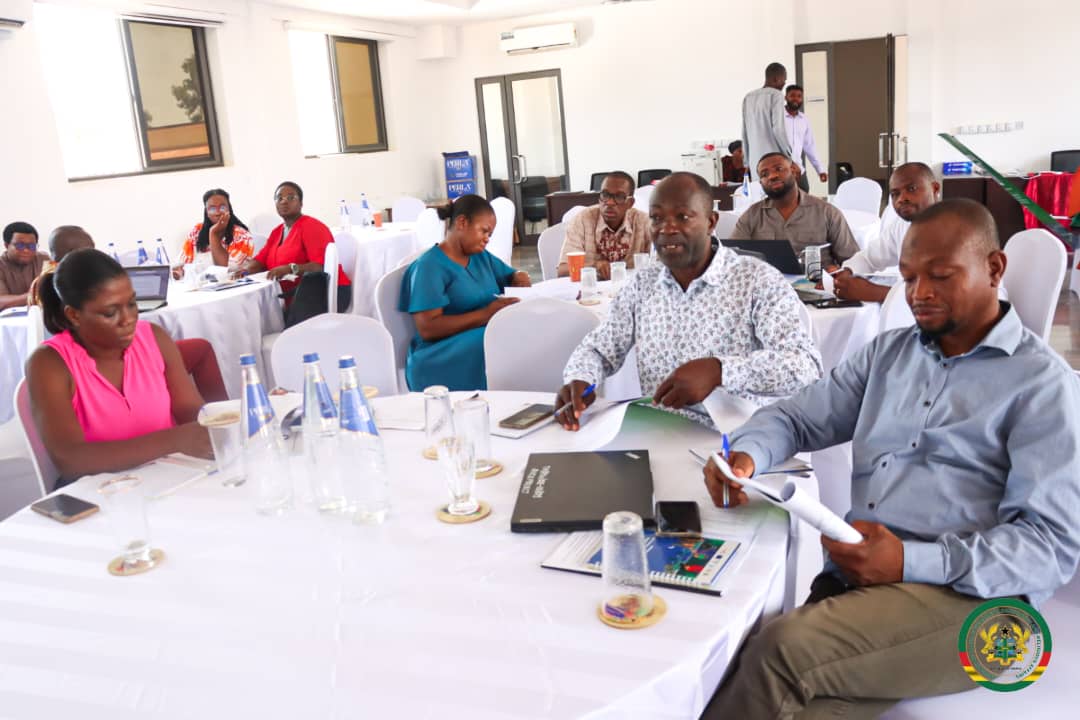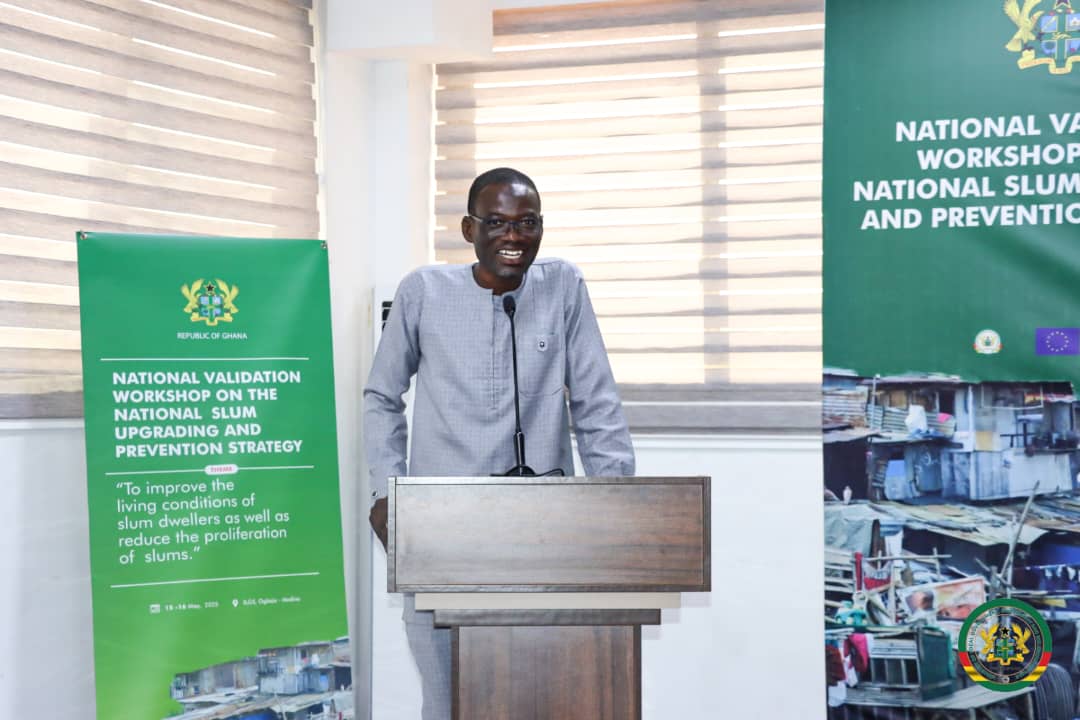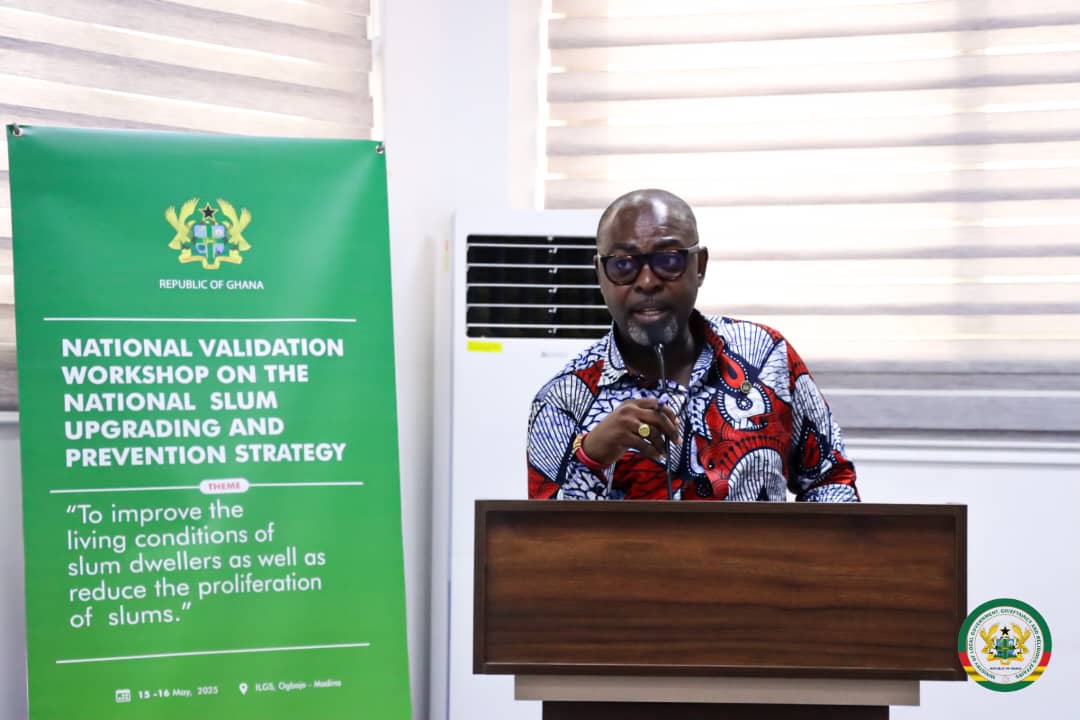A two-day national stakeholder validation workshop on the National Slum Upgrading and Prevention Strategy (NSUPS) has officially opened at the Institute of Local Government Studies (ILGS) in Accra. The event, spearheaded by the Ministry of Local Government, Chieftaincy and Religious Affairs (MLGCRA), is being held in collaboration with UN-Habitat.
The workshop aims to finalise the NSUPS document through extensive consultation and collective input, ensuring that the strategy is inclusive, practical, and grounded in the realities of urban Ghana. The NSUPS is a key national policy framework designed to improve living conditions in existing slums and prevent the emergence of new ones, an objective that aligns with Sustainable Development Goal 11; to make cities and human settlements inclusive, safe, resilient, and sustainable.
Delivering a keynote address on behalf of the Chief Director of the Ministry Mr. Amin Abdul-Rahaman, the Director in Charge of Local Governance and Decentralisation, Pln Samuel Seth Passah highlighted the urbanisation challenges confronting Ghana. He noted that more than 56% of the population now resides in urban areas, with projections suggesting this figure could rise to 65% in the near future. He therefore stressed the importance of a well-structured and actionable strategy to guide the physical development of cities and the equitable provision of services.
He also expressed appreciation for the contributions of various institutions throughout the development process and acknowledged the technical and financial support provided by UN-Habitat. He urged participants to bring their diverse expertise to bear in validating the draft document to ensure it adequately addresses the complex issues of urban poverty and slum development.
The workshop drew a wide range of participants, including representatives from key sector Ministries; Environment, Science, Technology and Innovation; Finance; Works and Housing; Gender, Children and Social Protection; Lands and Natural Resources; and Sanitation and Water Resources. Also in attendance are officials from the Ghana Statistical Service, Land Use and Spatial Planning Authority (LUSPA), National Development Planning Commission (NDPC), and several Metropolitan, Municipal, and District Assemblies (MMDAs), such as Accra Metropolitan and Tema Metropolitan Assemblies.
The inclusive nature of the workshop is expected to enrich the NSUPS with diverse perspectives, expertise, and insights paving the way for a well-coordinated national approach to slum upgrading and prevention.
UN-Habitat, a key technical partner in the process, reaffirmed its support for Ghana’s efforts in tackling urban informality and promoting sustainable urban development.
As the workshop continues, stakeholders are expected to build consensus on priority actions, institutional roles, and implementation modalities that will guide the execution of the strategy nationwide.
Source: Sandra Owusu Asamoah
(Public Relations Unit MLGCRA)

